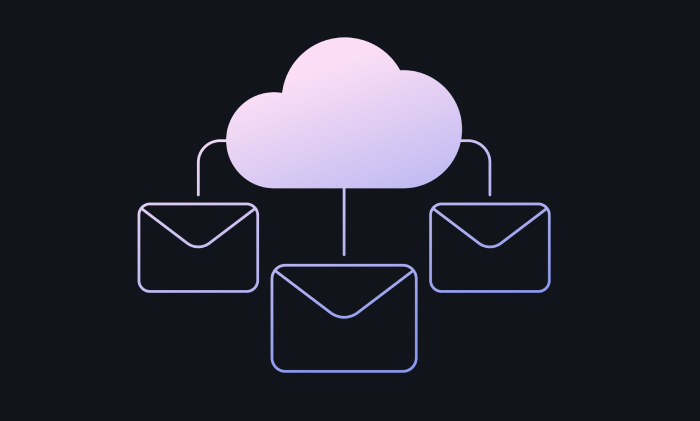A recent study by Microsoft reveals that more than 75% of customers anticipate using the cloud extensively in the next few years. Savvy business owners can capitalize on this trend by adopting cloud technology into both their services and infrastructure. To help you decide if incorporating this technology is the right decision for your business, read our list of the top 9 cloud benefits:
1. Reinventing the wheel with faster, more reliable cloud email
Texting may be one of the most popular forms of communication at home, but at work hosted business mail is still the reigning king. Not only is email the most convenient way to quickly share information, but you can easily send attachments like images or work documents. Cloud email service like Office 365 or Google Apps for Work prevent costly slowdowns caused by server or equipment errors. This can end up saving your business a lot of money in a short amount of time and will also eliminate the need for an email administrator or software fees.
2. Cloud backups can save your sanity
It has happened to everyone at least once: you’ve spent hours working on a project and then the power goes out. Not only is your recent work gone but it’s possible that your computer was damaged and other files were also effected. If you had used the cloud to store your files you’d never have to worry about this happening. Backups are kept safely on a remote server and getting them back is as simple as clicking a button.
3. Lower your operating costs and maximize profits
Moving to the cloud can make a huge impact on your company’s budget in multiple ways. First, by backing up your files online, you’ll avoid wasting time on redoing work. You also won’t have to pay as many licensing fees for software because it is hosted remotely. Your payroll costs will be significantly reduced since you won’t have to hire extra IT personnel. Finally, you’ll be using less power and have a reduced electricity bill.
4. Bring new life to old equipment
No matter what your business is, the chances are high that you’re probably still using some older e-mail hosting. These legacy machines might not be performing as well as you’d like them to, but upgrading to new machines is a major investment. Fortunately, the cloud can offer a solution that bridges the gap. The heavy processing will be handled remotely and this will save valuable system resources on older or less powerful machines.
5. Work seamlessly across multiple different operating systems
Microsoft Windows is currently the most popular operating system, but many companies are choosing to use Mac or Linux instead. Additionally, the majority of mobile devices don’t use a Windows-based operating system. If you have employees working from home, you’ll also need a way to conveniently share files and programs with them no matter what operating system they use. The cloud offers the solution to all these situations. Popular programs like Apache and PHP will work on any machine, regardless of its operating system.
6. Scale your business quickly and affordably
The cloud can help you maintain the right amount of software regardless whether you’re scaling your business up or down. If you’re growing, you can simply upgrade to a larger cloud service package. This is a much cheaper alternative than purchasing additional computers or servers, and it can help you expand your business even faster. In case your company is downsizing, you won’t have to worry about storing unused equipment.
7. Stay up to date with ease
Installing upgrades and patches on the computers in your business can be a very time-consuming process. Your IT staff will have to manually handle this for each machine and check that the updates have been installed correctly. If you’re using programs available on the cloud, however, these changes will be done automatically. This will ensure that your business stays current and that you never miss an important security notification. Use different analytics tools and utilize different types of business analytics as they can help you to track your audience’s reactions to posts as well as solve some narrow tasks such as how to see how many tweets a hashtag has.
8. Take advantage of mobility and use the cloud no matter where your employees are
More and more people are transitioning from a typical 9 to 5 office job to working from home via the cloud instead. This not only frees up the time that they would normally have to spend commuting, but also they can be more productive since they have a flexible schedule. Telecommuting can open up the field of potential employees for your business. Now you can hire people who don’t actually live anywhere near your brick and mortar office. Additionally, the cloud lets your employees use their own devices for work, which saves you the expense of purchasing new equipment for them.
9. Protect your employees’ and your customers’ confidential data
It seems like every day on the news you hear about a major corporate data breach or a new computer virus being discovered. Ensuring the safety of your files is an essential part of every modern business strategy. When you’re deciding which cloud service provider to use, be sure to carefully examine their security protocols. There are a wide range of security standards currently in use, but the most widely adopted is the Cloud Security Alliance (CSA). The CSA uses an extremely strict set of security requirements to ensure maximum data protection. This has made it the trusted choice for countless major companies, including Microsoft, Amazon, and Oracle.


